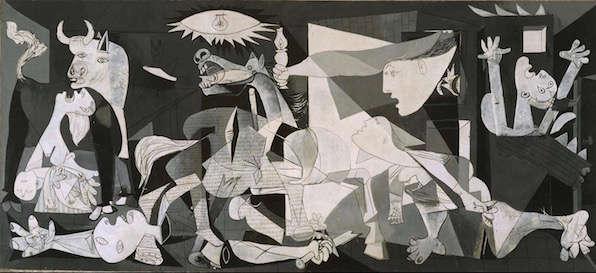A distant echo in a shattered world
(Letter written in the context of the 28th IPSO [1] Europe meeting: A shattered world – the echo of the unspoken)
[1] International Psychoanalytical Studies Organization
Violence has always been part of human nature. Freud (1930) in « Civilization and its Discontents » argues that civilization is built on the repression of primal human instincts, such as aggression and sexuality. He highlights the importance of social norms, laws, and institutions in channeling this violence. But what happens when these norms are overlooked, when the institutions that are supposed to represent the law—the superego—cover and justify violence?
The first thing I learned as a psychology student is the importance of boundaries, and how much anxiety and fear a child can feel when these boundaries are absent, or worse, suddenly lost. What can be done in a world where the red lines have been crossed, and everyone is not only watching but also justifying?
Standing in front of Guernica at the Reina Sofia Museum in Madrid, I was struck by the power of art. My mind couldn’t absorb all the violence and atrocities projected in this masterpiece by Picasso, created in 1937. As I stood there, I had no idea that I would see this painting come to life again, 87 years later, but this time, I and other Lebanese residents would be the main characters.
I write this paper, still struggling to find words for the atrocities we are enduring. How can we voice out our fears, anger, sadness, loss, pain, and guilt when faced with the unnameable? But worse, how can we gather our shattered inner world when what is spoken becomes nothing but a distant echo?
Bion explained the importance of the alpha-function in giving meaning and processing beta-elements. For this to work, there must be a receiver on the other end, someone capable of absorbing these raw, traumatic feelings, transforming them, and returning them to the sender in a meaningful form.
Amidst the chaos that surrounds us, how can we, as therapists and psychoanalysts, maintain this alpha-function when our own inner worlds are shaken? As a psychoanalyst in training, I listened to my supervisors recount the challenges they faced during wartime, but I never imagined that I, in the 21st century, would be reliving the same narrative. Last Tuesday, I was in a session with a patient when a strike hit a town nearby; the ground shook beneath us, and the deafening sound of a blast echoed in the room. I realized that the only way to continue the session, and to listen to the patient, was to detach ourselves from the outside world. We entered a kind of psychotic state—a parallel universe, our own therapeutic cocoon—unaware of what awaited us outside the clinic’s door.
The greatest challenge for us therapists and psychoanalysts during traumatic events is to piece together our own shattered fragments so that we can serve as a good container for the patient’s psyche. The risk is that we fall into "omnipotence," an omnipotence that our patients may envy and attack, while also threatening our own capacity for healthy mentalization. Where is the balance?
How can we help the patient represent and symbolize his experiences when we are living through the same traumas, sharing the same atrocities of the outside reality, and are still unable to articulate our own internal volcano of emotions? How can we do this when the echoes of the unspoken resurface in sudden eruptions, bringing with them transgenerational traumas and past civil war scars—the wars of 1982 and 2006, the Beirut port blast, the economic crises? These events awaken not only past traumas but also core issues around identity, sibling rivalry, egoistic survival instincts, belonging, fear of death, survivor’s guilt, and many, many more.
I write this letter from a café overlooking the ancient port of Byblos, troubled by the news of my friend's parents, trapped in the south by strikes because they refuse to abandon their home and land. It’s a dilemma many don’t understand: why not seek safety in other cities? Why refuse to leave their home? After all, it’s just a stack of stones. But no, it’s far more than that. Looking at this ancient, breathtaking port—dating back to around 3000 BC—and imagining, even for a second, that it might be taken by strangers is devastating. It’s not just the port I’d be losing; I’d be losing a part of my history, my identity, my ancestors’ land. It’s a part of my motherland—a motherland now shattered and under attack. How could I possibly leave?
Much doesn’t make sense at this moment. The only feeling I am certain of is my profound disillusionment with humanity. I will never give up and will always fight for humanity but how long can we endure in a perverse world where the Id reigns unchecked, where there is a complete absence of the Superego—a total absence of the Father—and a motherland struggling for survival? It feels as if we are infants in utter agony, screaming, crying, and shouting, our voices trapped as a distant echo in a completely shattered world.
Vanessa Élias (IPSO Representative for Lebanon)

